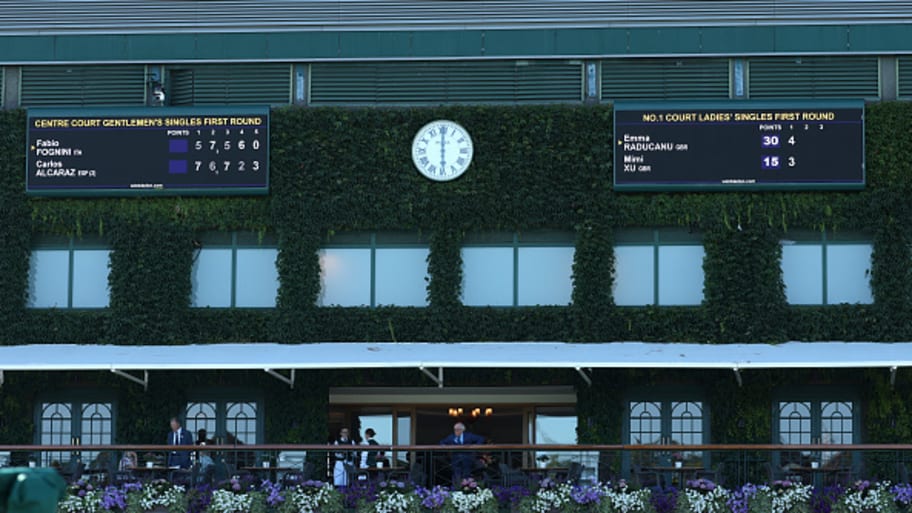
Day one of the 2025 Wimbledon tournament has already been filled with incredible matches from start to finish. There have been upsets and near-upsets just one day in.
But ultimately, day one ended up being cut short because of a time curfew. One intense match in particular between American Taylor Fritz and Frenchman Giovanni Mpetshi Perricard was suspended until Tuesday right ahead of the decisive fifth set. Fritz was noticeably upset about the tournament officials pausing the match, but there was nothing he could do.
Has Wimbledon always had a time curfew? Why is this a thing? Here's what you need to know about the infamous Wimbledon curfew, especially as more match suspensions will likely come up as the tournament continues.
Why Does Wimbledon Have a Time Curfew?
Wimbledon's natural curfew used to be when the sun set as the tournament grounds did not have lights or roofs on the courts for extended play.
However, in 2009, Wimbledon updated Centre Court by adding a new roof and spotlights. With that upgrade came a new agreement between the tournament and local residents. A curfew was established permitting play to continue on past 11 p.m. local time.
This curfew is in place mostly because of the London's Underground Tube ending service at midnight local time on weekdays. Fans leaving Wimbledon's grounds wouldn't be able to use public transportation past midnight, so the curfew allows them to have time to return home after the competition. It doesn't help that the nearest Tube station is about a 15-minute walk away.
Are there exceptions to the curfew?
It's definitely on a situation-by-situation basis in terms of any exceptions to the 11 p.m. curfew. However, if tournament officials notice a match is nearing its end, or if the match is in an intense tiebreak, competitors can play a few minutes past the mark.
One such example is from 2012 when Andy Murray was up 5-1 in the final set of a match as the curfew was approaching. Officials allowed the match to end, with him winning that set 6-1 to finish at 11:02 p.m. Much time after that likely wouldn't have been allowed.
Could matches start earlier?
One issue with the curfew is that Wimbledon often doesn't start its matches until the afternoon. Centre Court, for instance, begins play at 1:30 p.m. local time and tries to squeeze in three matches during the earlier rounds. This often results in some suspensions of matches each year because of time, but it doesn't seem that the tournament will budge on an earlier start time.
The later start time is dependent on the fans attending the matches having ample time to get to the grounds and venture around, and it's also dependent on international fans tuning in at reasonable times for the big matches.
More Wimbledon on Sports Illustrated
This article was originally published on www.si.com as Why Does Wimbledon Have a Time Curfew?.







